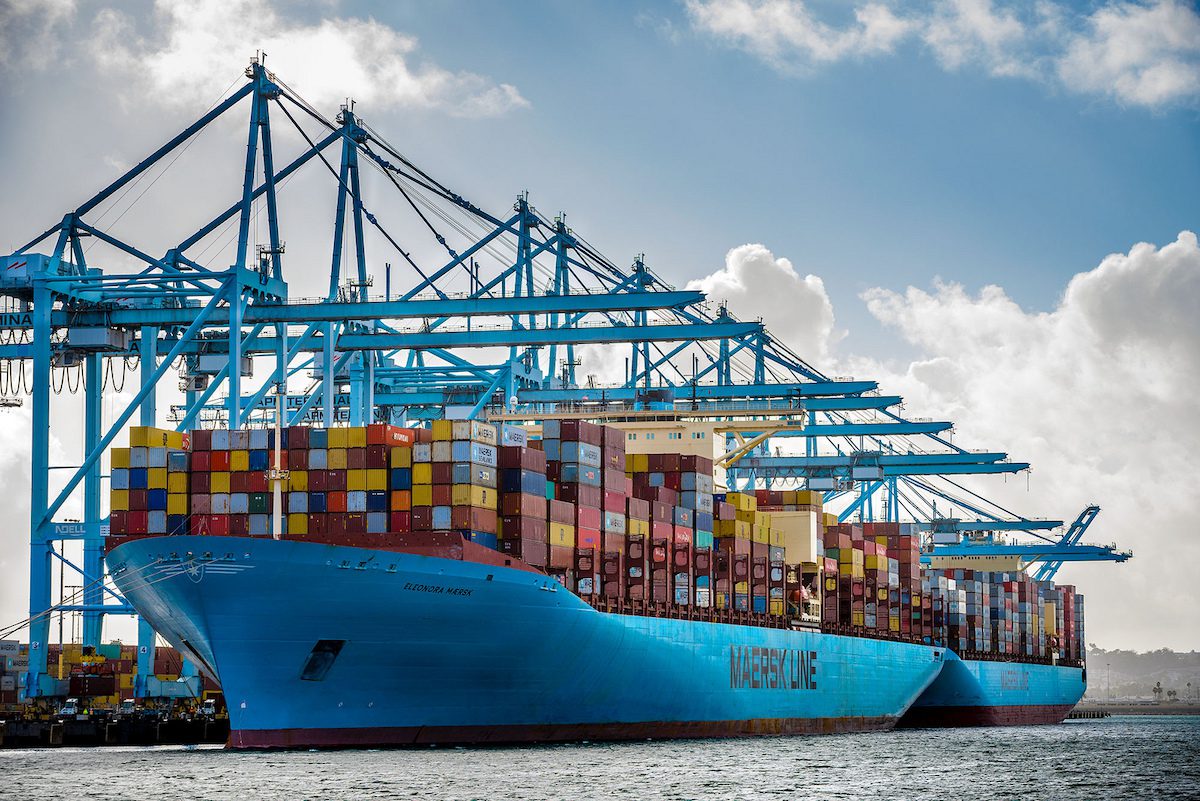Photo: APM Terminals
 By Jacob Gronholt-Pedersen COPENHAGEN, May 28 (Reuters) – Mediterranean Shipping Co (MSC) and CMA CGM, two of the world’s biggest container shipping groups, are to join market leader Maersk in a blockchain platform aimed at limiting a costly paper trail in the industry.
By Jacob Gronholt-Pedersen COPENHAGEN, May 28 (Reuters) – Mediterranean Shipping Co (MSC) and CMA CGM, two of the world’s biggest container shipping groups, are to join market leader Maersk in a blockchain platform aimed at limiting a costly paper trail in the industry.
With MSC and French-based CMA CGM, the second- and fourth-largest container shipping companies, joining the platform, nearly half of all cargo being shipped by sea – which accounts for 90% of traded goods worldwide – will be tracked using it.
More than 100 companies, ports or authorities, such as Procter & Gamble and U.S. Customs and Border Protection, have signed up for the platform led by Copenhagen-based Maersk, the world’s largest container shipping company.
The participation of key players in the platform, launched last year in collaboration with IBM, is seen as crucial for cutting costs in an industry that has seen little innovation since the container was invented in the 1950s.
“Still lots of processes in our industry actually predate the container,” Maersk Executive Vice President Vincent Clerc said in an interview.
“Even today customers live with the administrative burden of having to maintain the huge amount of paperwork and not having visibility of what is happening with their goods,” Clerc said, calling MSC and CMA CGM’s participation a game changer.
The blockchain platform, named TradeLens, helps customers, shipping lines, freight forwarders, port authorities and customs authorities manage and track the paper trail by digitizing the supply chain process from end to end.
The technology powers the digital currency bitcoin and enables data sharing across a network of individual computers.
CMA CGM, which is also part of a blockchain initiative with Asian shipping firms called GSBN, said rival lines would all benefit from TradeLens having greater scale.
“The fact that we are joining forces and creating a standard in the industry is much more powerful,” Rodolphe Saade, CMA CGM’s chairman and chief executive, told Reuters.
Each year, more than $4 trillion in goods are shipped, and more than 80% of the goods consumers use daily are carried by the ocean shipping industry, according to Maersk.
Paperwork accounts for about 20% on average of the cost of shipping a container from one place to another. A significant part of that administrative cost can be shaved off once the platform is used at full scale, Clerc said.
“Digital collaboration is key to the evolution of the container shipping industry,” André Simha, chief digital & innovation officer at Swiss-based MSC, said in a statement.
(Reporting by Jacob Gronholt-Pedersen, additional reporting by Stine Jacobsen, writing by Gus Trompiz Editing by David Holmes and Emelia Sithole-Matarise)
(c) Copyright Thomson Reuters 2019.

 Join The Club
Join The Club











